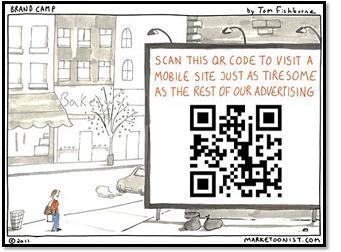 Monty Hall knew what he was doing – the deal business for radio is worthy of your time and thought. Yesterday, we broke down overall interest in deals around the world, how businesses that have tried deals value them, and the need for radio to not walk away from this space.
Monty Hall knew what he was doing – the deal business for radio is worthy of your time and thought. Yesterday, we broke down overall interest in deals around the world, how businesses that have tried deals value them, and the need for radio to not walk away from this space.
As we discussed, radio has an opportunity to have success with deals – but not by cloning Groupon or by simply making a deals program another hobby or product on the digital shelf.
You might expect me to say this, but a little research would help. Trust me when I tell you that in this year’s new Techsurvey 8, the percentage of your core listeners who receive Groupon’s daily emails is enormous. Living Social looks good, too.
How hard would it be to recruit a couple of focus groups of these listeners, go to school on these programs, and determine the best avenue for your station’s entry and success? If radio is not willing to do some R&D in these emerging spaces, it cannot effectively compete. (The cost of fielding two Listener Advisory Board groups? Less than $1,000 + pizza, soda, and a station tour.)
How does the audience perceive Groupon, Living Social, and local entrants? Where do they work, where do they come up short, and what would make these programs better? And how can a local station (or cluster) develop a better deals product?
1. Customization. Just as a listener in your email club appreciates you knowing something about her, this is an advantage you could mine with deals. A concert pre-sale for a band a listener likes will be more successful than sending the same offer to the entire database (which is essentially what Groupon’s doing now).
2. Personalization. Groupon and Living Social are powered by impersonal emails. Radio has its personalities, teams, and shows. Deal endorsements can drive website traffic, downloads, and ultimately, audience purchases.
3. Cume. It goes without saying – but I’ll say it anyway: many stations have solid databases that may have better local credibility than Groupon has in your market. But you also have the megaphone known as your cume. Radio’s ability to be able to get out a call to action is part of the advantage that separates it from online deals companies.
4. Service. Talk to retailers who have used Groupon before. Chances are good that they’ve encountered problems. The inability to write or proof copy, not knowing exactly when their deal will “hit,” and other drawbacks can be overcome by a strong local sales effort and care. Make Groupon’s clunkiness work for your station by servicing your deal clients.
5. Innovation. Groupon may be a good starter deals model, but there are advances that can be made to enhance the platform. The fact that Groupon has been slow to make major improvements signals opportunity for agile local stations and clusters. At Jacobs Media, we’re about to unleash a new retail deal concept to our clients. Trust me when I tell you that if you do your homework and think it through, there’s money to be made on local deals.
And that brings us to our summation because once again, the deals opportunity is emblematic of radio not going “all in” and not committing to a long-term plan.
 The sellers in the cubicles aren’t going to reinvent deals nor are they going to solve this problem. When we look at the real world of media and marketing, we see a growing array of options for business and advertisers to select from in order to reach customers. Some break down the “broad” in broadcasting to provide highly targeted, accountable solutions.
The sellers in the cubicles aren’t going to reinvent deals nor are they going to solve this problem. When we look at the real world of media and marketing, we see a growing array of options for business and advertisers to select from in order to reach customers. Some break down the “broad” in broadcasting to provide highly targeted, accountable solutions.
Email marketing, social media, search, mobile, and yes, deals are all part of the new array of weaponry available to any advertiser. And even on Main Street, many retailers are waking up to the new possibilities.
So what are we selling? :30s and :60s? Or integrated, multi-channel solutions that can generate store traffic and energize brands?
The reality that radio’s revenue grew 1% in 2011 should be all the motivation the industry needs to create, reinvent, and innovate solutions that take advantages of local radio’s inherent strengths and equities.
Don’t tell me that the deal opportunity is a “done deal.”
- Media And Technology In 2025: Believe It Or Not! - April 18, 2025
- In Radio, You Just Never Know - April 17, 2025
- The Secret To Making A Great Podcast (And Great Radio) - April 16, 2025




You are so right. If a radio group really wanted to max out the Groupon concept, they would experiment with different types of deals, with different types of clients/stations/demos, then experiment with different types of on/of air marketing for them and develop an optimized template that improved the success probability for each deal they sold.
There are ways to make the concept uniquely suited to and successful for radio. Why do you think the industry is so disinterested in beta testing concepts?
Bob, thanks for the comment. Actually, many companies are still in the deals game (Cumulus, CBS, Greater Media, Entercom, and others). But I sense a feeling of station-level fatigue – which is why I wrote these two posts. I believe that the barrier is fear of Groupon’s size and perhaps a lack of commitment in the system. Radio companies are chasing dollars in many different areas, and perhaps to a fault. Focusing on a couple of external digital areas might be smarter. But the larger issue is that the one department in the radio station that has never acted strategically or utilized research is the sales department. Maybe you could fly by the seat of your pants in the ’70s and ’80s, but today’s selling effort requires more sophistication, nuance, and out and out strategy. Groupon (and Pandora, Google, etc.) has its advantages to be sure, but local radio has many other arrows in the quiver it fails to exploit. It’s a shame because this is a sales category where the audience would give radio credit for adding more value to their lives and station listening. Again, appreciate your kind words.